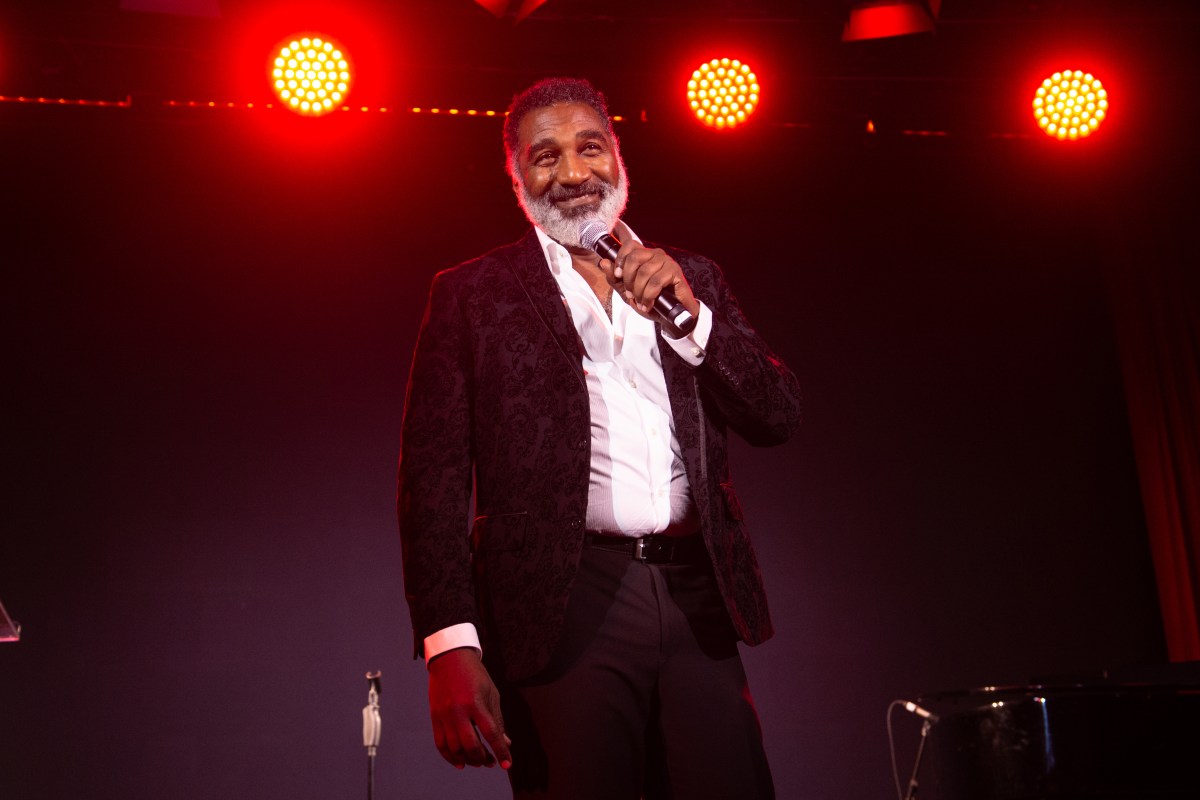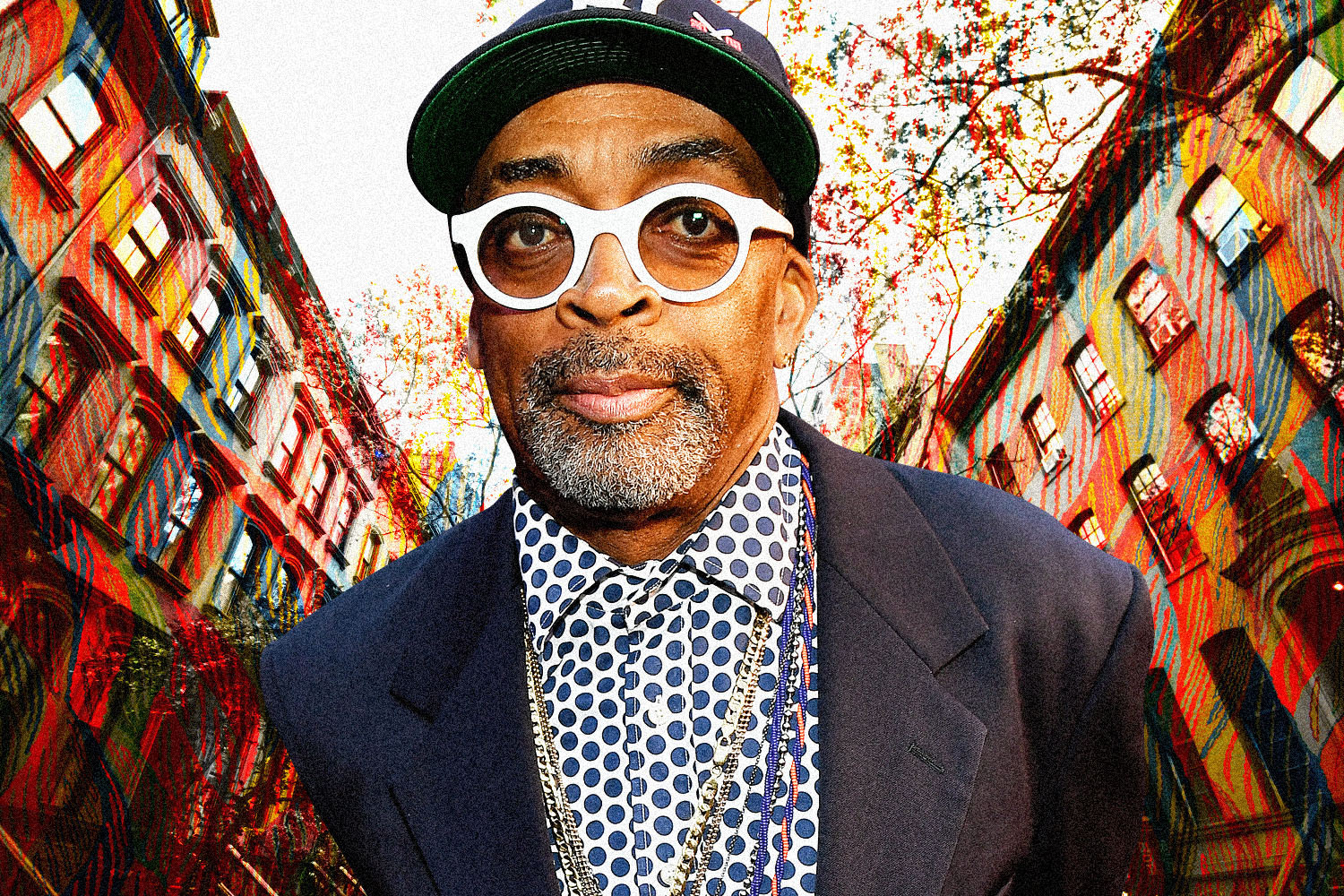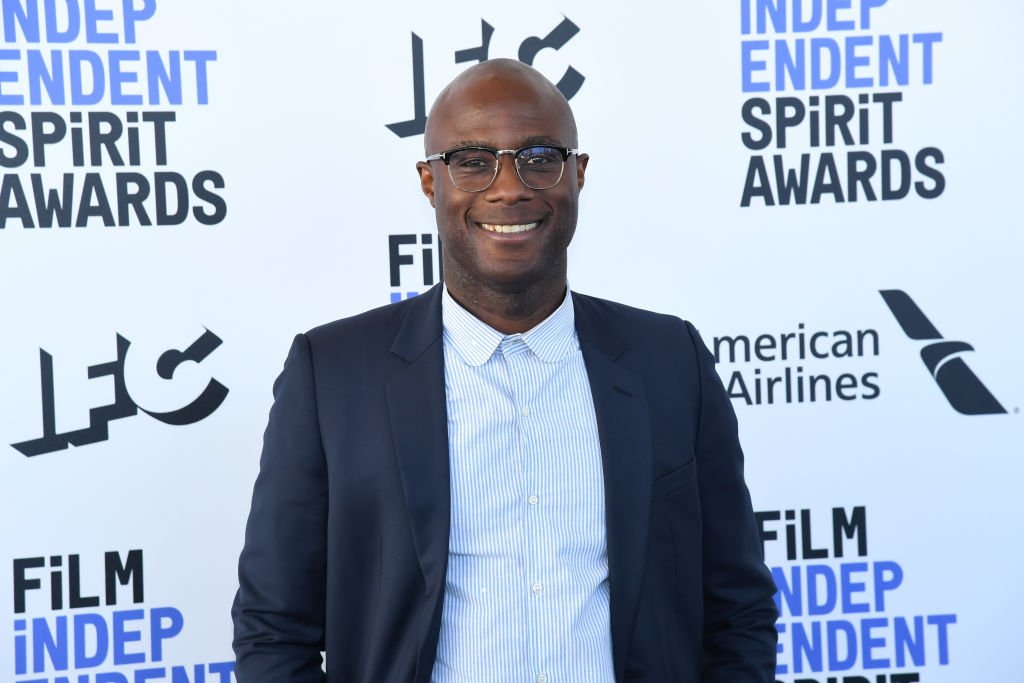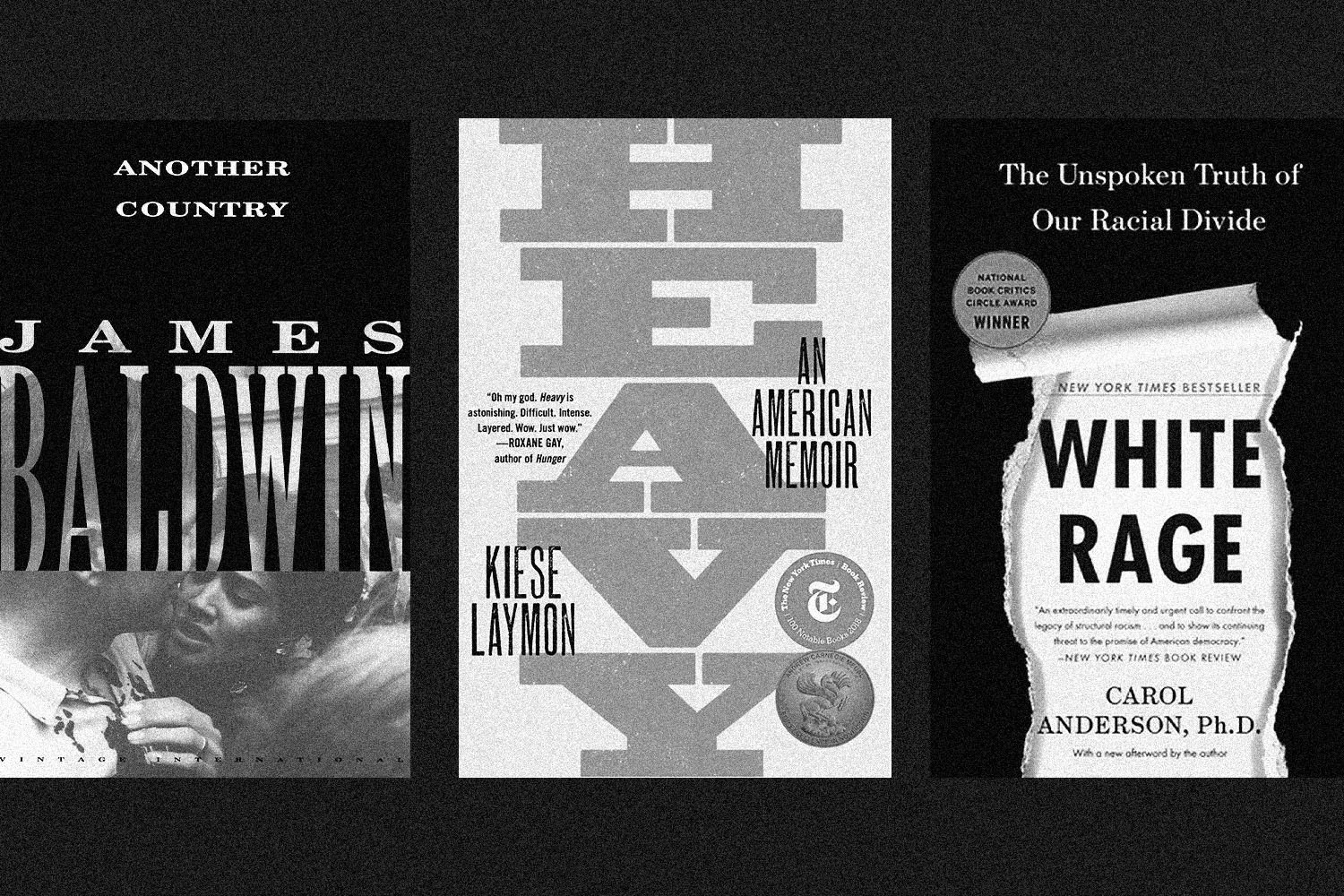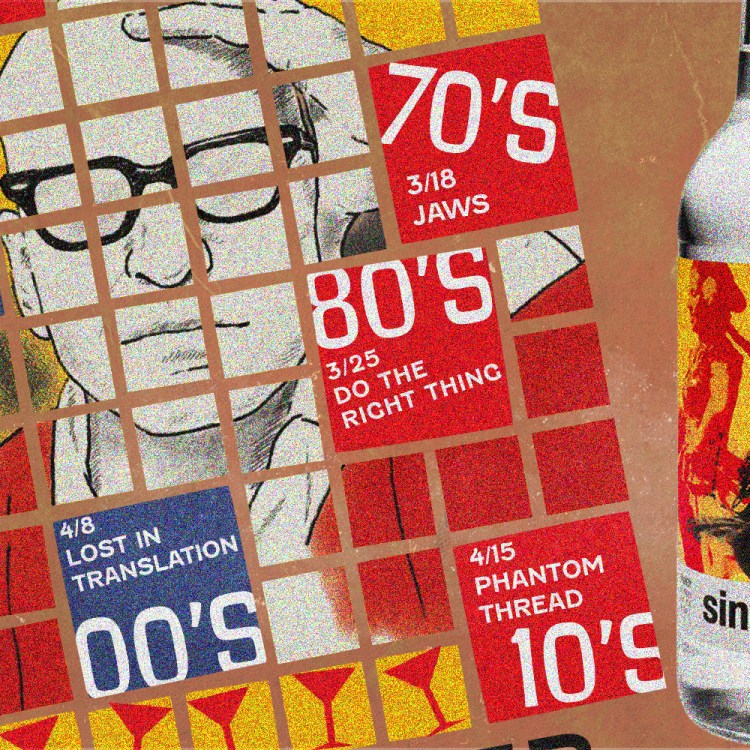After 30 years of acting, Norm Lewis thought he had a pretty good sense of what shape his career would take. He’s attained living-legend status in the theater, having taken the West End by storm as the first Black actor to assay the role of Javert in Les Misérables and wowing Broadway with his Tony-nominated turn in Porgy and Bess. Like many sensations of the Great White Way, he’s also filled out his résumé with TV gigs, most notably including a memorable multi-episode arc on Scandal. But for whatever reason, the world of movies has never really been his domain, aside from scattered bit parts here and there. Nonetheless, Lewis had advanced to a comfortable working juncture, far from the days of waiting for a big break and content with his space in the entertainment industry.
Apparently, Spike Lee didn’t get the memo.
“Spike called me one night early last year,” Lewis tells InsideHook over the phone from his home quarantine, “and he said, ‘What’re you doing right now? I’m about to send you a script. I want you to read it and tell me what you think about it.’ Click. He hangs up the phone, and I just think, ‘When Spike Lee tells you to do something, you should probably just do it.’” The next night, they got dinner and compared notes, and just like that, a veteran board-treader had scored a plum role in one of the biggest and most vital films of the year. “I was jumping up and down on the inside,” Lewis recalls, “but of course, trying to be cool in front of Spike.”
From the prosceniums of New York and London, Lewis was plunged into the jungles of Southeast Asia as Eddie, a member of the Vietnam War platoon that lends Lee’s new military epic Da 5 Bloods its title. The film jumps back and forth between their original tour of duty and a follow-up mission in the present, as the brothers-in-arms return to the battlefield decades later to retrieve a cache of gold stashed back in the day. In the tradition of war pictures past, the guys present as archetypes that Lee gradually complicates, whether that’s the hothead (Delroy Lindo) or the peacemaker (Clarke Peters). Eddie’s the one who’s changed over the decades, rolling back into Ho Chi Minh City as a self-made millionaire flashing his black card. Though their conflicting personalities can result in some volatile reactions, they all share a fraternal closeness forged through action. Before long, Lewis and his castmates could relate.
“We got there and basically just started hanging out with each other, us being the foreigners on foreign land,” Lewis says. “We got to know each other during a boot camp, where we had to learn the tactics that the military was using at that time. We were learning how to hold a gun, how to take one apart and reassemble it, learning terminology from the time period. There were signals that the military would use while in the field, since you don’t want to give away your position. We went through about two or three weeks of that, and that alone will bond a group of people together. But we had a great dynamic. What you saw on camera, that was pretty much the same off [camera].”
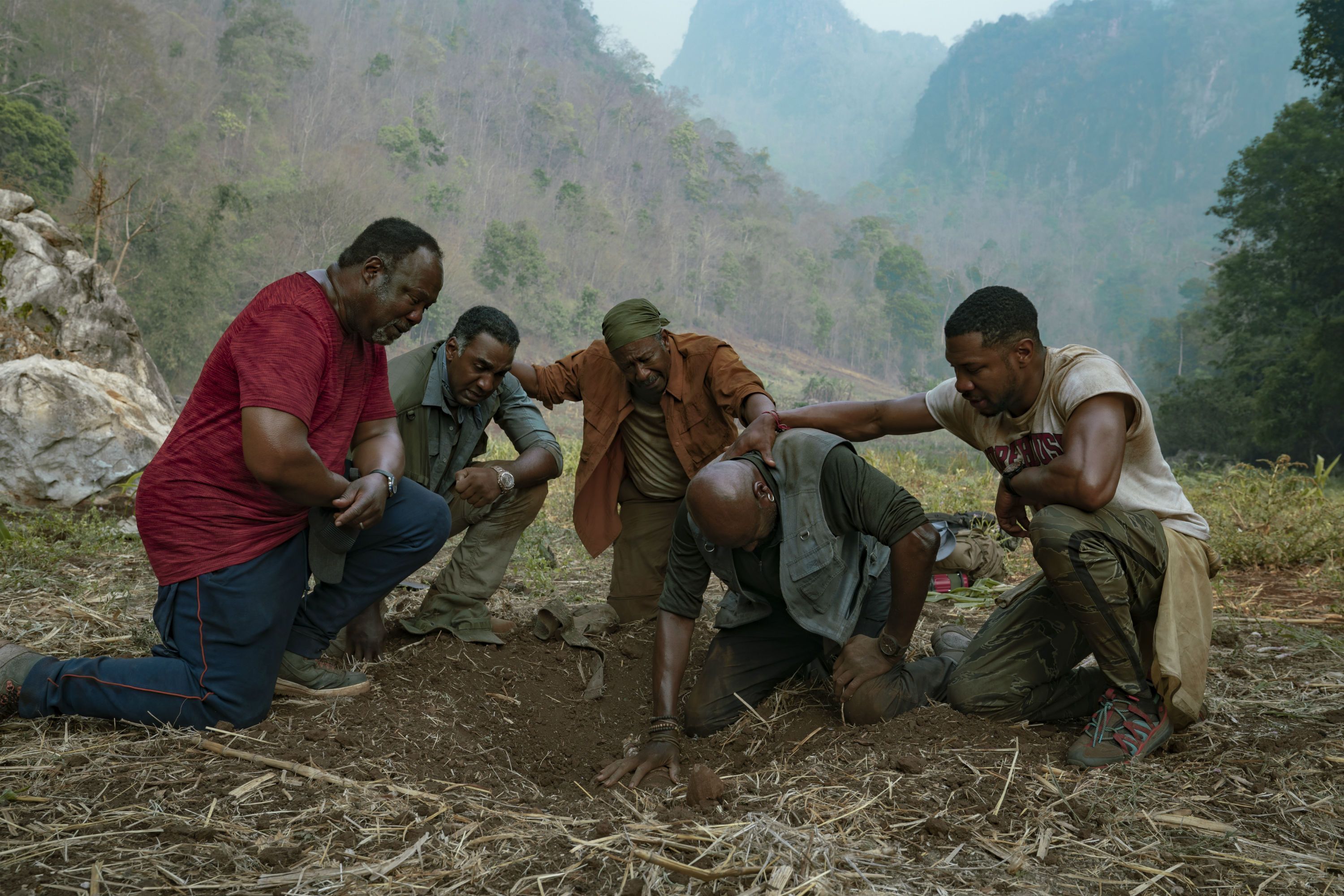
During the shoot in Vietnam and the thickets of Thailand, Lewis was stricken by just how much of Lee’s process involved keeping it real, relative to the finely honed artifice of theatrical productions. To approximate the crushing weight of the crew’s toted gold, he and his comrades filled their packs with rocks and weights used to secure objects on set. They then lugged that cargo through some of the most forbidding conditions on the planet, and gained valuable insight in the process.
“It was just as hot as it looks. It was, on average, around 97 degrees,” Lewis says. “The lowest it ever got was 94. The highest was around 112. We had to wear all that gear, the complete uniform with the guns and equipment, running up and down the terrain all day. Every bead of sweat you see was real. The exhaustion was real. Lotta bugs, and we had a lot of bug spray, but they didn’t care. They saw us, and just thought, ‘Alright, new stuff to eat!’ They forced their way through the bug spray layer. As challenging as it all was, that wound up being necessary, for how it added another element of understanding for what the men would’ve been going through.”
More than any physical strain, tapping in to the mindset of a soldier proved the most formidable facet of Lewis’s dissection of his character. (Well, aside from modulating his voice, a persistent hurdle in his forays onscreen. “In the theater, you have to reach the back of the house, so you have be [adopts rich, stentorian baritone] a little more big with your voice,” Lewis explains. He’s got a charming story about getting told to take it easy while being directed by Carl Weathers.) Lee gave his actors copy of the book from which the film has been adapted, and even brought a real-life vet to share his own story. “If you know anything about Vietnam vets, they don’t usually want to talk about that time, especially about their PTSD,” Lewis says. “But these guys opened up as much as they could, in the hopes that the characters would ultimately be more truthful.”
The film overflows with truths, many of them harsh and difficult: That armies expect minorities to die for a country that won’t care for them. That the wronged Black servicemen still perpetrated a fair share of atrocities on the Vietnamese. That the psychical scars left from these events still ache if poked. Lee comes at these ideas from an expressionistic angle, wending in and out of reality as the company tromps deeper into the wild and deeper into the madness of warfare. As is customary for a new Spike Lee Joint, his bolder creative strokes have yielded some mixed reviews, which will undoubtedly be scuttled when we brand his latest effort a masterpiece 10 years down the line. “Not everyone can take Spike’s in-your-face-ness at first,” Lewis says. “But it always happens, that eventually, they listen.” Lewis feels his background makes him uniquely attuned to process some of Lee’s unorthodox methods.
In one such divisive choice, Lee takes no prosthetic or CGI measures to de-age his actors for their scenes in the shit. “We were portraying ourselves in a memory, remembered from the present,” goes Lewis’s thought process. “If you tell the story, people will follow you; we didn’t need to do makeup or hair, because that would’ve taken you out of it. You’d have been looking at the makeup, or the CGI, or if they’d cast younger guys you’d be thinking about who does and doesn’t look like their older self. Like in theater, you just go with the imagined universe. The Elephant Man doesn’t have to have a face full of prosthetics for you to accept that he is who he is.”
Eddie serves a vital purpose to the sprawling saga of the Bloods, connecting their windfall to the sense of social responsibility they must bring back with them. [Spoilers ahead] After stepping on a landmine and getting blown to smithereens, Eddie leaves his share of the loot to his local chapter of Black Lives Matter, cuing up a poignant call-to-action for Black empowerment. “It feels like we filmed this movie the week before it was released,” Lewis says. “Spike’s a prophet, man. Some people see the movie and talk about whether history is repeating itself, but it’s not, because it’s always been like this. There’s no repetition, it’s constant. It’s not timely — it’s timeless. People are more aware of that now, and that’s fine. There’s a dialogue beginning, instead of monologues getting screamed at each other. You’ve got people in Japan saying that Black lives matter? That’s a massive, societal shift. Spike must have known.”
For Lewis, an instantaneous global reach is just one of the new aspects in this noteworthy chapter of his career. (“We’re quarantined, and I do think that’ll mean more people will see it than they would otherwise, with everyone at home with Netflix.”) It would’ve been all-new for him to go with the film to the Cannes Film Festival, a premiere dashed by the pandemic lockdown. But he’s keeping mindful of what really matters, the most thrilling first of all: being at the center of a vital conversation dominating the mainstream.
“I would’ve loved to go do the red carpet with all the flashbulbs, but I think the universe has reminded us what about this film really matters. The glitz and glamor could never be as important as the work itself, and what it means. I know a lot of people are suddenly going, ‘Let’s learn more about the African-American experience in this country, through history.’ This is a movie for this moment.”
This article appeared in an InsideHook newsletter. Sign up for free to get more on travel, wellness, style, drinking, and culture.
